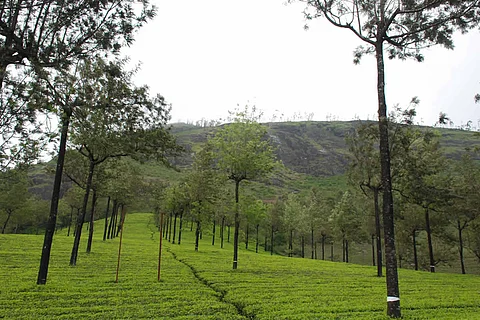

Once a plantation town, Kerala’s Munnar has metamorphosed into a booming centre of business and tourism, with a veritable proliferation of hotels, resorts, homestays and other facilities. Following the COVID-19 outbreak and the resultant lockdown, local businesses saw cancellations galore. The travel circuit came to a shuddering halt by March 17. It was the summer of discontent for the 11,000 people employed in Munnar’s hospitality industry.
“The Nipah outbreak, two devastating floods in 2018 and 2019, and now COVID-19 have worsened the crisis in the hospitality industry. The recurring setbacks like mass cancellations, refunds, mounting loans and interests have added to the financial hardships of the ailing industry. It is a complete washout this peak season,” says Vinod Vattekkat, Vice President, Showcase Munnar, and General Manager, Cloud Valley.
Apart from its ubiquitous tea plantations, Munnar’s allure lies in its close proximity to a host of attractions like Kolukkumalai, the world’s highest tea plantation that churns out ‘the most flavoursome tea in the market.’ Within driving distance is the Eravikulam National Park, where you can spot the endangered Nilgiri tahr gambolling freely on the slopes. Munnar plays host to the 8,841-ft Anaimudi, the highest peak south of the Himalayas, and also shelters the exotic and endangered Neelakurinji plant that drapes the hills with its mauve blossoms once in 12 years. In the vicinity is Marayoor, which has Kerala’s largest natural sandal plantation, and Chinnar Wildlife Sanctuary, where the grizzled giant squirrel is the prime attraction. One cannot afford to miss India’s first Tea Museum in the heart of the town.
Though the tourism fraternity in Munnar sought the help of the state and central governments to save them from the unprecedented crisis, only partial moratorium and partial time relaxations for payment of professional and property taxes have been granted. Fifty percent of the electricity charges have also been waived. The stakeholders have been granted extension till December end for payment of the balance amount. Employees were paid 50% salary in the first two months.
“The Kerala Tourism department has given a proposal to the Finance department for a loan of Rs 100 crore to bail out the struggling industry. A low interest loan package for stakeholders has also been recommended by the Tourism department. Now members of the travel fraternity are awaiting the sanction and approval of Rs 100 crore,” Vattekkat adds.
For businesses, how employees act in the aftermath of the pandemic and lockdown is a matter of concern. Vattekkat is apprehensive that if the employees don’t return to their original jobs, they will face a shortage of staff. Many of them may have already moved on to other jobs or businesses to keep them going. Nidheesh Kumar, Arun and Antony, three marketing professionals working in hotels in Munnar, have been pushed to diversify into seafood supply in Kochi and Alappuzha. Shakthi Travels, a Gujarat-based travel agency which used to sell 200 rooms in Munnar, has now diversified into distribution of spices and essentials in Ahmedabad.
Most of the properties in Munnar are leased out and not owned by the stakeholders. The allied industries have been equally hit by the pandemic. Shopkeepers, tourist vehicle drivers, tour guides, handicraft, spice, souvenir shop owners, and others who depend on tourism for their livelihood also had to bear the brunt of the economic repercussions of the pandemic.
On the wildlife tourism side, R Lakshmi, Wildlife Warden of Eravikulam National Park, laments that income from entry fees has been nil since the park closed down for the general public on January 21 for the Nilgiri tahr calving season. “The park did not open on March 21 as scheduled because the lockdown was put in place at that time. It has been difficult to sustain the fulltime employees due to shortage of funds. If everything goes well, the park will open by September first week. We will ensure adequate safety protocols such as physical distancing, thermal scanning, sanitised vehicles, gloves and masks for the protection of our visitors,” Lakshmi says.
While the tourism industry battles the impact of the COVID-19 outbreak and the resultant lockdowns, R Mohan, President, Munnar Environmental and Wildlife Society (MEWS), feels that tourism will bounce back. He believes that once there is a vaccine, Munnar will soon be unlocked and tourism will resume.
On the positive side, Mohan notes, “It’s heartening to see Munnar all clean, green and pollution-free sans vehicular traffic and busloads of tourists.”
He adds, “Due to the combined efforts of government officials, NGOs and hoteliers, Munnar is currently free of plastic signboards and tourism trash. Beautification of 27 places is under progress. The panchayat waste management team ensures that plastic bottles and other trash is collected daily from the market.”
Regaining its former glory and charm, the idyllic hill station of Munnar is all geared up to welcome tourists back.
All pictures by Susheela Nair
Susheela Nair is an independent food, travel and lifestyle writer, and photographer based in Bangalore. She has contributed content, articles and images on food, travel, lifestyle, photography, environment and ecotourism to several reputed national publications. Her writings constitute a wide spectrum, including guide books, brochures and coffee table books.